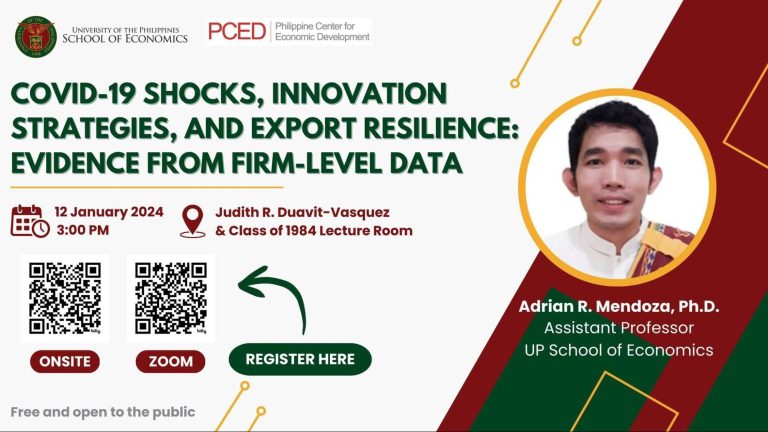Abstract:
A large firm-level dataset that covers 23 countries was assembled from the World Bank
Establishment Surveys and COVID-19 Surveys to analyze the impact of COVID-19 shocks on
exporters and whether their emergency innovation responses improved business resilience,
robustness, and survival during the pandemic. The empirical strategy employed logistic,
Weibull, and negative binomial regressions to model exporters’ behavior amid the disruptions.
The results show that despite the larger exposure to global shocks, exporters, especially those
located in developed countries and connected to global value chains, had higher survival
probability than non-exporters during the crisis. The regressions also confirm that in the face of
COVID-19 shocks, relatively more experienced, productive, and product-innovative exporters
were less likely to exit during the first year of the pandemic, while stringent containment policies
accelerated failure time. In terms of emergency innovation responses amid lockdowns and
disruptions, “positive” technology-intensive responses were more prevalent among exporters
while drastic “negative” emergency responses had higher incidence among non-exporters.
Nevertheless, the regressions show that these emergency responses are either insignificant or
negatively related to exporters’ survival, robustness, and resilience, even in the presence of
government support. This suggests that the emergency responses adopted by firms during the
pandemic were actually signs of distress and mainly used as last-ditch effort to stay in business.
On the other hand, sophisticated emergency product innovations were only observed among
surviving firms. Consistent with the Schumpeterian cleansing effect, the results suggest that the
best way to have prepared for a massive shock such as COVID-19 was through building
superior capabilities many years before the pandemic hit. In terms of policy, relaxing stringency
measures seemed more relevant than government support packages to the survival and
recovery of firms.
About the Author:
Adrian R. Mendoza obtained his PhD in Economics from UP Diliman, where he is also currently
completing his Master of Statistics degree. His research covers topics ranging from household income
diversification, technology and economic growth, economic diversification, innovation of manufacturers
in global value chains (GVCs), social and technological upgrading in GVCs, exchange rates, trade wars,
and the trade impacts of COVID-19. His recent works have been published in the Philippine Review of
Economics, Philippine Journal of Public Policy, the Journal of International Trade & Economic
Development, and several book projects by the Asian Development Bank. He has past experience as
economist at the National Economic and Development Authority, research intern at the International
Monetary Fund Office in Manila, and consultant at the World Bank, International Labour Organization,
Asian Development Bank, and several Philippine government agencies.



